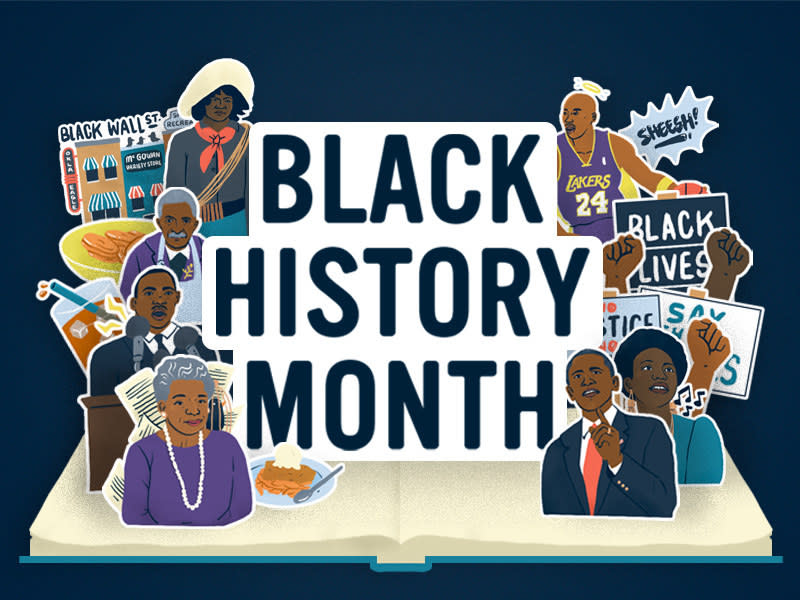Mixed Kids Are Sharing What It's Like To Grow Up Biracial, Having Society Constantly Label Them, And The Differences In Being Raised By A White Mom Vs. A Black Mom
Recently, after various individuals went viral on TikTok for sharing their experiences growing up as a mixed race person, the conversations shifted to how being raised by a white mom and Black dad vs. a Black mom and white dad shaped their identity. BuzzFeed reached out to five of these people. Here are their stories:
Growing up with a white mom in a predominantly Black community meant feeling ostracized for most of 17-year-old Christian Herron's life.
"My entire life growing up was really hard for me," he explained. "Whenever I told somebody I was mixed, they’d laugh at me."
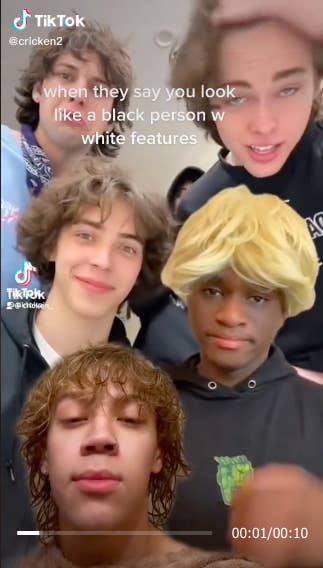
Christian believes appropriation is partly to blame for the difficulty he faced in fitting in. "A lot of the reason why mixed people aren’t accepted is because mixed people are looked at as if they’re trying to fit in instead of what they are, and that’s because of white people trying to take Black culture. It makes [mixed people] look like they're trying to take the culture instead of being born into it."
Christian's father passed away when he was very young, so his exposure to the Black side of his family came from living with his aunt in St. Louis, where he said the community was very much "Black culture for real." So when he moved to Illinois in second or third grade, it was a slight "culture shock" to suddenly be thrust back into a predominantly white community.

"It's very different the way white families treat their kids compared to how Black parents treat their kids," he explained. "In white families [love is expressed] in more physical [ways] like taking me places, doing things, and in Black families, it’s more like they take pride in family relationships."
Elizabeth Booker Houston, a 31-year-old in DC, also grew up with a white mother and a Black father. She believes that how in touch mixed kids are to their Black culture can often depend upon which parent is white. "Especially when your white parent is your mother — because of how society is set up, mothers tend to do a lot of the upbringing," she explained.
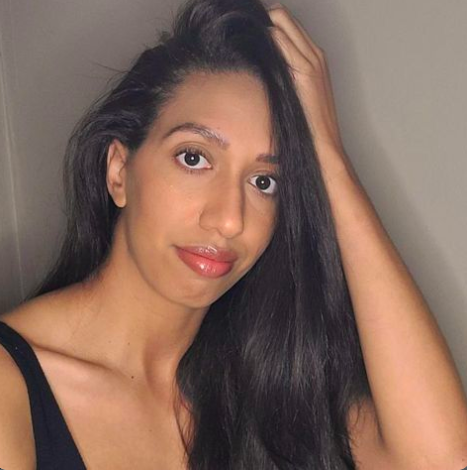
"I grew up close to my dad, and he always made sure I was very aware of my history and culture. You will find that that [knowledge] can vary among mixed people [though} in terms of how much they are involved in their history."
Elizabeth added that although her dad can of course relate to the racism she experiences, he is unable to relate to her "main maternal influences" being white women.
Growing up, she said she internalized a lot of racism, so that she felt "lucky" to be seen as "mixed" rather than "Black." "I used to always correct people when they would say, 'Oh you’re Black,' and I would say, 'No I’m mixed."

"I grew up always being aware of being mixed," she continued. "I started to have Black and white people saying things like, 'You have good hair,' or my lighter skin being treated as something that was nicer. I internalized all of those things which is very much internalized racism, so I had this idea of thinking I’m so lucky to be biracial."
It wasn't until high school that Elizabeth realized her "identity" was being used in a way she was no longer OK with. "Around 16 or 17, I had so many Black women idols and I started to dissect internally how wrong those comments were, and around 18 or 19, I learned what colorism meant."
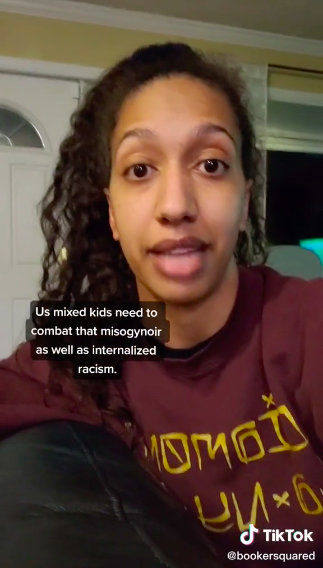
"I had this moment where I realized my identity was being used to perpetuate white supremacy and I didn’t want that anymore."
Elizabeth admitted that although she loves her mother dearly, she does believe had she been raised by a Black mother, her experience growing up would have been a lot different. "I think if I had had a Black mother, I would have been a lot less likely to experience the level of internalized racism that I experienced."

Twenty-two-year old Riley Simpson grew up with a white mom and Black father until her father's death when she was 13. "I think that a mother still provides motherly needs, and a father still provides fatherly needs. But I didn’t grow up with a Black mom, so I don't really know."
She said growing up, her family didn't really talk about race, because her dad wanted she and her brother to feel "normal." "It wasn't until my brother came home after karate, and was like 'Why am I the only Black kid in the room?'" that she first began to question her identity.
Riley believes growing up as a mixed race person with a white mom did make it difficult for her to make friends with other Black kids. "Black people have more respect for you if you came out of a Black person’s vagina," she said. "So Black people really did not like me, and as far as making female friends, I couldn't get accepted by the African Americans, and even when I had African American friends they would make it very clear that I’m not Black and I can’t say the 'N' word."
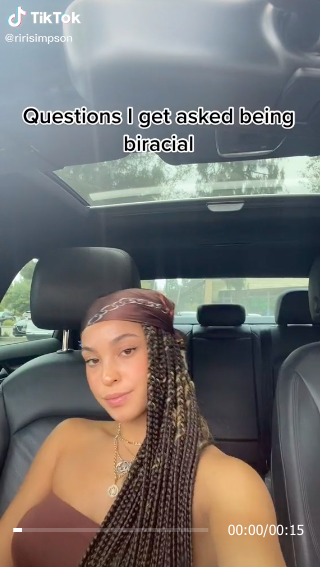
"I would get so confused because I am Black! But they just don't classify me as fully Black."
Not fitting in with Black or white kids is a universal experience for mixed kids, according to 19-year-old Hayden Gretczko. "People that were full Black would tell me that I’m not Black and people that were full white would tell me that I’m not white," he explained. "I kind of had an identity crisis for a little bit. I never really thought about it [being mixed] until people started bringing it up to me in third grade."
Hayden grew up in the Bronx with a Black mom and a white dad, and later moved to North Carolina when he was 11. He believes that growing up with a mother who was Black allowed him to explore his "identity" sooner. "I know there are a lot of kids who are mixed who are still kind of lost in who they really are," he said. "To me, when a kid is growing up, most of their foundation is their mother, and a lot of times the mom is the one giving guidance. So that direction that they get from their mother [plays] a very important role in growing up. My friends that had a white mom — they didn't know how to take care of their hair, or didn't learn that until like, high school."
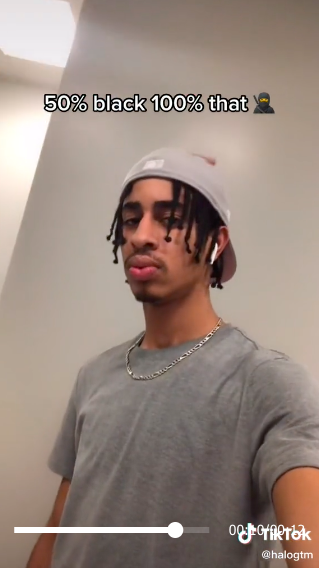
"The orientation of your parents doesn’t make you any less mixed, Black or respected," Hayden clarified. "I just feel that the experience growing up might be easier with the orientation I have."
Growing up with one Black parent and one white parent is one thing, but growing up with one Black parent and one white parent that are separated really highlighted the different parenting styles for 28-year-old Jaclyn Brown. "I think a better word would be that Black parents are more cautious, but I get why it’s seen as strict," she said.
Jaclyn was born in Houston, Texas but moved to Louisiana when she was 13. "I was the only biracial student in my entire middle school. Everyone was either white or Black, and there were only two Hispanic kids."
Jaclyn said the older she gets the more "self-aware" she becomes about her identity, and she feels that the confusion around mixed race individuals comes from others constantly trying to label her.

"I think a misconception is that we’re a confused person who is constantly stuck in an identity crisis," she explained. "But the reality is that that’s how y'all see us, because y'all are confused, and that’s the narrative you created that we fit into."
One of the biggest misconceptions about being mixed that Riley, Elizabeth, Hayden, Christian, and Jaclyn all agree on, is the notion that mixed people don't experience racism.
"My great grandmother was extremely racist," Jaclyn sad. "And I wouldn't even be surprised if she didn’t know I was half Black."
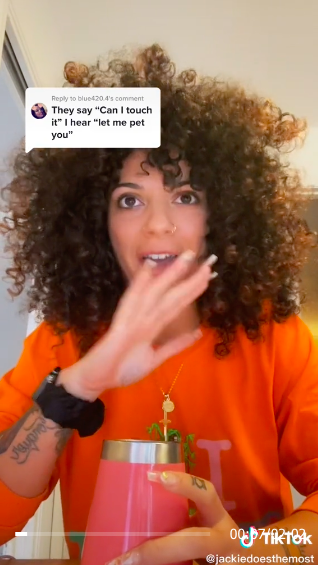
"They think that our lives have no problems because we are Black and white," Riley said. "But if we get arrested, we are considered Black; if a police pulls me over, I’m Black."

"It’s one thing to be mixed and be hated by both sides, when you only have love for BOTH sides!"
"I feel like the reason why mixed people are told they are not Black is because some Black people define being Black as always facing oppression, and always having to overcome something," Hayden explained. "And they don’t feel mixed people experience the same issues."
"There is no certain way to be Black, and there is no certain way to be white," Christian said.

"I feel like people should be more comfortable with who they are as a person instead of who society says they should be."
Elizabeth also added that while she does indeed experience racism, she believes it's important for mixed people to understand that at times, they may have more privilege than other Black people. "For myself and many biracial people, we live in two worlds," she explained. "For example, when we see conversations about Black women being discriminated against in the workplace for having 4C hair — I am not part of that conversation, my job is to be an ally."
Make sure you head here for more of our Black History Month coverage!
